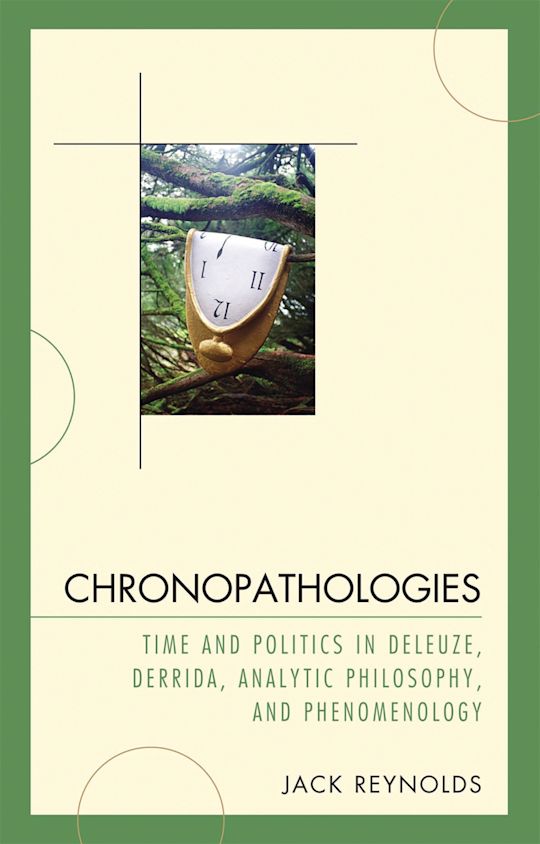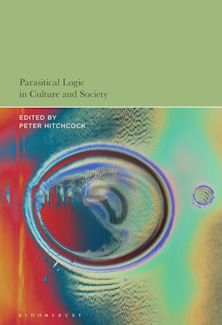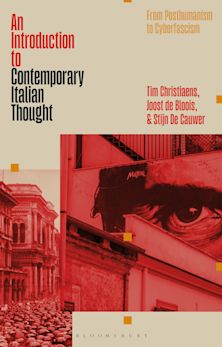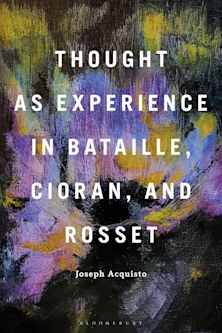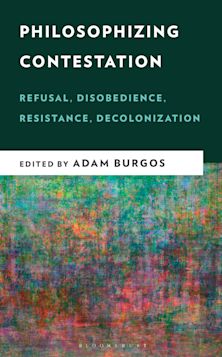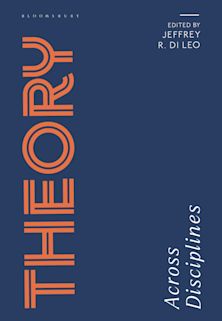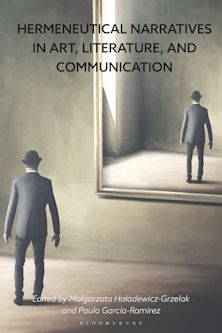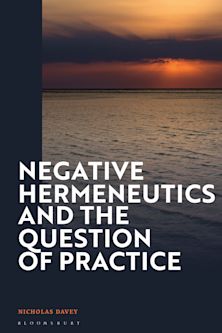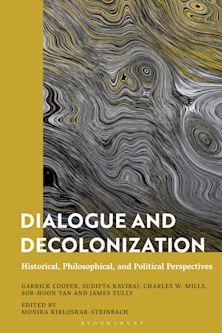- Home
- ACADEMIC
- Philosophy
- Critical Theory
- Chronopathologies
Chronopathologies
Time and Politics in Deleuze, Derrida, Analytic Philosophy, and Phenomenology
Chronopathologies
Time and Politics in Deleuze, Derrida, Analytic Philosophy, and Phenomenology
This product is usually dispatched within 1 week
- Delivery and returns info
-
Free CA delivery on orders $40 or over
You must sign in to add this item to your wishlist. Please sign in or create an account
Description
A battle over the politics (and philosophy) of time is a major part of what is at stake in the differences between three competing currents of contemporary philosophy: analytic philosophy, post-structuralist philosophy, and phenomenological philosophy. Avowed or tacit philosophies of time define representatives of each of these groups and also guard against their potential interlocutors. However, by bringing the temporal differences between these philosophical trajectories to the fore, and showing both their methodological presuppositions and their ethico-political implications, this book begins a long overdue dialogue on their respective strengths and weaknesses. It argues that there are systemic temporal problems (chronopathologies) that afflict each, but especially the post-structuralist tradition (focusing on Gilles Deleuze and Jacques Derrida and their prophetic future politics) and the analytic tradition (focusing on John Rawls and philosophical methodology in general, particularly the tendency to oscillate between forms of atemporality and intuition-oriented “presentism”). What is required is a “middle-way” that does not treat the living-present and the pragmatic temporality associated with bodily coping as an epiphenomenon to be explained away as either a transcendental illusion (and as a reactive force that is ethically problematic), or as a subjective/psychological experience that is not ultimately real.
Table of Contents
Part I. Analytic Philosophy, Atemporality, and Presentism: Some Encounters Across the Chunnel
Chapter 1: Analytic and Continental Philosophy: A Contretemps?
Chapter 2: Common Sense and Philosophical Methodology: Some Metaphilosophical Reflections on Analytic Philosophy via Deleuze
Chapter 3: Negotiating the Non-negotiable: Rawls, Derrida, and the Intertwining of Political Calculation and Ultra-politics
Part II. Poststructuralism, Time Out of Joint, and Future Politics
Chapter 4: The Politics of Futurity in Derrida and Deleuze
Chapter 5: Wounds and Scars: Deleuze on the Time and the Ethic of the Event
Chapter 6: Deleuze's Perverse-structure: Beyond the Other-structure and the Struggle for Recognition
Chapter 7: Derrida, Friendship, and the Transcendental Priority of the "Untimely"
Part III. Phenomenology, Embodiment, and Pragmatic Temporality: An Anachronistic Dialogue
Chapter 8: Time Out of Joint: Between Phenomenology and Post-structuralism
Chapter 9: Dreyfus, Merleau-Ponty, and Deleuze on l'Habitude, Coping, and Trauma in Morality and Skill Acquisition
Chapter 10: Touched by Time: Some Critical Reflections on Derrida's Reading of Merleau-Ponty in Le Toucher.
Chapter 11: Heidegger and Derrida on Being-towards-death and Philosophy's Untimely Future
Conclusion: Beyond Chronopathologies
Product details
| Published | Dec 08 2011 |
|---|---|
| Format | Hardback |
| Edition | 1st |
| Extent | 292 |
| ISBN | 9780739132814 |
| Imprint | Lexington Books |
| Dimensions | 241 x 162 mm |
| Publisher | Bloomsbury Publishing |
About the contributors
Reviews
-
Reynolds is at the forefront of a return: the rebirth of phenomenology after successive burials by analytic philosophy, post-structuralism and naturalism. It returns, critically and controversially, through a philosophy of time setting lived time alongside contemporary scientific theories and ideas taken from Derrida and Deleuze. Reynolds has made believable phantoms of Heidegger, Levinas and, above all, Merleau-Ponty. It matters not whether you wish to dispel them or make them flesh, his book is an essential discussion of debates around time at the cross-over of different philosophical traditions.
James Williams, University of Dundee
-
Jack Reynolds has undertaken the monumental task of defining philosophy as it stands today. Unlike any other book of which I know, Reynolds has approached all the major strains of contemporary philosophy with an even hand and a depth of insight, from analytic philosophy to post-structuralism, to phenomenology. Reynolds shows us that the primary philosophical problem remains that of time but now it is time connected to ethics and politics. The value of Chronopathologies cannot be underestimated.
Leonard Lawlor, Sparks Professor of Philosophy, Penn State University
-
Jack Reynolds’ insightful essays demonstrate the importance as well as the difficulty of thinking across the metaphilosophical borders that separate phenomenology, poststructuralism and analytic philosophy. They develop a compelling case for the deficiencies of each, from the perspective of the others, in relation to their respective approaches to time and suggest ways in which each can learn from the others. This book both calls for and exemplifies genuine conversation between analytic and continental philosophy.
Paul Patton, author of Deleuzian Concepts: Philosophy, Colonization, Politics and translator of Gilles Deleuze's Difference and Repetition, Wuhan University and Flinders University
-
In Chronopathologies, the Australian philosopher Jack Reynolds gives an exciting analysis of the intimate connection between time and politics in three trajectories of contemporary philosophy: analytic philosophy, poststructuralism and phenomenology. Reynolds makes an important contribution to the philosophical study of time. He convincingly shows that the analytic and continental branches of philosophy need each other to become aware of the temporal and normative biases that bedevil them.
International Journal of Philosophical Studies









